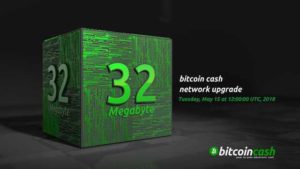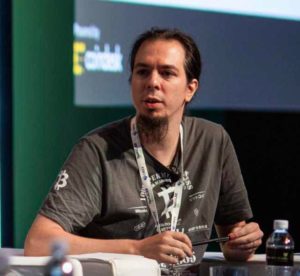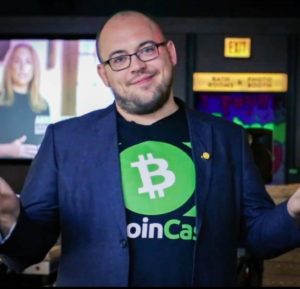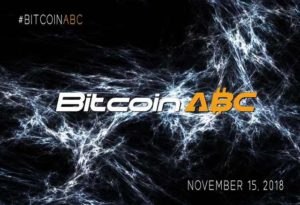I’m Kurt. Co-Founder of Cryptotraders Pro and vocal member of the Bitcoin Cash community. I have been a big-blocker since before it was a political term in 2015, and I run the Chicago Bitcoin Cash Meetup, which is a vibrant community (check us out on Youtube) of people who have been excited about Satoshi’s Vision before THAT became a political term in the Bitcoin Cash community. I believe that bitcoin means “business” and that it is primarily a tool to eliminate human trust and eliminate friction in the economy, and that the white paper allows for sufficient decentralization for security, stability and function of a peer-to-peer digital cash. It is not without many weeks of careful consideration that I have come to flesh out my thoughts about the imminent Bitcoin Cash hard fork. For a Youtube recap of this information, click here.
Bitcoin Cash has had three successful network upgrades by network consensus to hard fork, and we have shown maturity and respect as a community under heavy criticism from the Bitcoin Core community and other religious coin factions. It was just six months ago that we celebrated in unison that we were upgrading to thirty-two megabyte blocks and bringing back OP_codes that would allow for on-chain social media and various other exciting items in the bitcoin scripting language!
However, on November 15th, the Bitcoin Cash community will come to a crossroads, and there are two major implementation proposals that demand that we audit our beliefs about the purpose of bitcoin.
In 2017, we were united in the dire necessity to split the BTC community. We split from Bitcoin Core in order to preserve the original vision of Satoshi Nakamoto’s ideas about the Peer-to-Peer Digital Cash that he called “bitcoin,” and we knew it would be a difficult war to win. However, we all agreed that that war was worth fighting even if we lost. In order to be epistemologically self-conscious about bitcoin, we need to take stock of exactly what principles we are willing to fight for, and what principles are not worth a civil war.
I am not in bitcoin to get rich or to automate the world with smart contracts or to tokenize the universe. Those things will unequivocally happen after a successful implementation of blockchain into our daily lives, but they are not the foundation of bitcoin. I am willing to fight for bitcoin to be beholden to the principles of the Bitcoin White Paper, because those principles, consistently applied, render us the single greatest tool for commerce; which will facilitate the greatest boom of worldwide economic freedom in the history of the world.
That’s why the Bitcoin Cash community exists!
Until a few months ago, the Bitcoin Cash community publicly believed in these principles to their core, and we knew that opportunities for wealth would come at the end of a long line of grassroots spreading of Bitcoin Cash in commerce. Roger Ver, for example, is famous for saying that bitcoin is not a science project to be played with, but that it is cash for the world. And he is right!
We universally derided solutions that ventured outside of the white paper until publication of a post by Bitcoin ABC lead developer Amaury Sechet.

Amaury Sechet is the founder of Bitcoin ABC, and the man most responsible for the forking of Bitcoin Cash from Bitcoin Core. He has been a prominent and respected member of the Bitcoin Cash community; trusted to speak authoritatively on the overall roadmap of Bitcoin Cash. Furthermore, Bitcoin ABC is the most widely used node implementation of Bitcoin Cash, and has been considered the vanguard of Bitcoin Cash along side the also respected Bitcoin Unlimited and Bitcoin XT implementations.
In July, 2018, with no obvious pretext, Amaury Sechet described a new set of rules which would change the role of miners in the network so that they could make pre-determinations about blocks as they make their way into queue rather than competing for them as they come in organically from the network: (Read more here.). This change is called “preconsensus,” and it caused an uproar in the Bitcoin Cash community because it is a change in the role of miners outside of the structures of the white paper, therefore changing the economics of bitcoin, and arguably creating an “alt-coin.” Rather than take a step back to consider the backlash from the community, Bitcoin ABC has doubled down on the need for the utilization of Canonical Transaction Ordering (or CTOR), rather than allowing miners to compete for transactions sent in organic order.
Bitcoin ABC also advocated the addition of an allegedly “Blockstream-inspired” OP_code called “OP_datasigverify” (or “DSV” for short). DSV is used to enable binary contracts that allow for specific kinds of smart contract execution as well as the connection of oracles and other 2nd layer solutions to the BCH chain. Unfortunately, adding a new OP_code when all of its functions could be executed with existing bitcoin scripts is a step away from the white paper with questionable intent. The last piece of contention in ABC’s proposals is that they have joined the camp of Bitmain-funded “Wormhole Cash:” a new smart contract protocol that requires the burning of BCH in exchange for WHC at a rate of 1:100, destroying Bitcoin Cash to create “WHC” to run in a new layer of the network, which is, again a seemingly unnecessary change to network economics and a side-track to the goal of creating peer-to-peer digital cash in accordance with the white paper.
All of these things may be fascinating ideas, and Amaury Sechet comes across as a thoughtful and talented developer who is likeable, kind and hard-working. But these ideas absolutely treat Bitcoin Cash as a science project, and the contentiousness of these things have created a massive divide in the community.
ABC has shown that:
They do not believe that bitcoin, as described in Satoshi Nakamoto’s white paper, can scale.
They believe that bitcoin’s scripting language and OP_codes are insufficient for modern applications.
Enter Bitcoin SV: “Satoshi Vision”
If you believe that bitcoin is sufficient, then bitcoin must keep its game theory, the economic model of the network, and everything that goes with it. Bitcoin is only Bitcoin if it is an unbroken chain of digital signatures back to Satoshi’s first transaction to Hal Finney; hashed and settled in blocks every ten minutes since 2009. It is secured by SHA256 mining with a distributed network of nodes which compete to fill blocks with competitive efficiency so that they may profit. The incentives of the network protect it so that it can be trusted to be a means of exchange, store of value, and ultimately a unit of account. Bitcoin Version 0.1 contained hundreds of OP_codes to allow programmers to connect applications via script directly to the blockchain. In fact, Satoshi Nakamoto famously said that, “The nature of Bitcoin is such that once version 0.1 was released, the core design was set in stone for the rest of its lifetime.” (Read more here).
The hardest part about implementing Satoshi’s Vision is knowing the unknowable. Similar to the missing years of Jesus’ life in the New Testament, whole sects and offshoots of the Christian religion exist because it is simply untenable to have a definitive answer about every single possible scenario. Rather, the world was given a set of guiding principles (The Bible for Christians and the White Paper for Bitcoiners) – some immutable, and some flexible – to interpret the wisest path forward. For many years, Satoshi has been gone. He (or they) disappeared into the ether, leaving bitcoin’s development in the hands of Gavin Andresen, worldwide developers and the mining community of 2010.

However, the path became rocky as new players entered the space and development of bitcoin took on a new philosophical guidestone from the Cambridge School of Monetary Theory; believing that bitcoin was more akin to gold and a store of value than it was to frictionless cash to be used as a means of exchange. In the malaise, a PR campaign raged on social media as the enigmatic Craig Steven Wright came onto the scene after being on the run from the Australian tax authorities brought on by an unbelievable series of events. Craig Wright is a computer scientist, economist and theologian with degrees and professional accolades that would wreak havoc on LinkedIn’s profile limitations. He also claims to be “Satoshi Nakamoto” or at least a key member of the team that created bitcoin. Dr. Wright’s entrance into the original bitcoin scaling debate was a catalyst for the revocation of Gavin Andresen’s keys to the bitcoin Github, and his presence and attitude on social media are often called “prickly,” by members of his own tribe.
Today, Craig is the chief scientist at nChain, one of the central hubs of Bitcoin Cash development and the home of the Bitcoin “Satoshi Vision” client. The Bitcoin SV team is responsible for development at the direction of CoinGeek mining pool, and they seek to give an implementation option to any miner who would prefer not to allow OP datasigverify, CTOR, Preconsensus or any of the contentious items from the Bitcoin ABC roadmap. Instead, the aim of Bitcoin SV is to return Bitcoin Cash to remove the bloat of about 7 years of development by Bitcoin Core, and return bitcoin to version 0.1.
Upon return to version 0.1, Bitcoin SV aims to raise the block size to 128mb and re-enable the original OP_codes that existed in version 0.1 many years ago under the belief that Satoshi’s original vision was sufficient and desirable. At the very least, the Bitcoin SV team and Craig Wright believe that we should foundationally use Bitcoin Version 0.1 as the basis from which all further development stems, rather than continuing to create new derivation paths and possibly conflicting sets of upgrades.
The fear of this position is that nChain and Craig Wright personally have created patents that apply only to this roadmap, and that certain uses of Bitcoin Cash will become “pay-Craig-to-play,” which flies in the face of bitcoin being a permissionless system.
The other fear is that bitcoin is just plainly an insufficient technology with limitations that we should expect in a ten year old technology. Satoshi Nakamoto is not God (is he?), and he likely could not have known how huge blocks could be successfully and efficiently propagated every ten minutes without the addition of new ideas that he couldn’t have conceived and were therefore not present in the white paper. Frankly, the rest of the contention about the Bitcoin SV camp is based entirely on aesthetics and Craig’s personality. Dr. Wright has blocked many prominent members of the Bitcoin Cash community on social media and in developer Slack channels. This includes public denouncement of Vin Armani, Amaury Sechet, Peter Rizun, Jihan Wu and Roger Ver. He has resorted to name-calling, threats of sustained 51% attacks and heavy criticisms of the “crypto-anarchist” worldview. He’s gone so far as state that prominent members of Bitcoin ABC, Bitcoin.com and Bitmain will all end up incarcerated for violation of securities, fraud and patent laws if they don’t comply with “Satoshi’s Vision.”
Now that communications have broken down to the point of foul language and significant threats, it pains me to have to take a step back and reevaluate everything. Add in the fact that “Nakamoto Consensus,” the mechanism by which miners choose which chain isbitcoin, is an unprecedented event that could have serious implications on BTC, Tether, and anything else that relies on SHA256. There’s also talks of miners from both sides using the specifics of this event to take coins from SPV wallets that are only functioning from one implementation instead of both Bitcoin ABC and Bitcoin SV.
What do you believe, bitcoiner? What is Bitcoin Cash? What is bitcoin?
Peter Rizun said Segwit coins are not bitcoins because they don’t adhere to the Nakamoto diagram that defines a bitcoin. Does CTOR do the same thing?
Do we believe bitcoin, as described in the white paper is sufficient? Bitcoin Core and Amaury Sechet do not.
Do we believe bitcoin is a permissionless system that allows everyone to “be their own bank” in an upcoming bankless, stateless society? Craig Wright and presumably nChain and their partners do not.
Should developers have supremacy over the network? Most developers think so.
Should miners have supremacy over the network? Most miners think so.
I have friends on all sides of this debate. There are people I respect on all sides of this debate. On one side, Bitmain, Bitcoin.com, OpenBazaar, Electron Cash, CoinText, ViaBTC, Purse.io and others for the Bitcoin ABC roadmap. On the other side, there is MoneyButton, Yours.org, HandCash, CentBee, FiveBucks.com, KeyPort.tv, Cryptonize.it, BitcoinToken, CoinGeek, Ayre Media and others for the Bitcoin SV Roadmap. Those are two long lists of companies and tools representing people who I respect and trust, and on the other end of this, so called, “hash war,” I hope we can all break bread and call each other allies again.
Fundamentally, I support the Bitcoin SV roadmap, even though I disagree with the timbre with which Craig Wright has pushed for it. I go this direction because I believe that bitcoin, as described in the Satoshi Nakamoto white paper, deserves to be unleashed. So far, letting bitcoin be bitcoin has worked every single time, but trying to over-complicate it has consistently born out unfortunate consequences.
My advice for anyone holding Bitcoin Cash is to make sure you are using a fresh, new wallet for which you control your private keys. Generate a new wallet and a new address, send your BCH there, and sit tight until the hash war is over. It take minutes, or it could take weeks, but it will end eventually, and when it does, you will have ownership of every bit or satoshi for which you control the keys.
In closing, the Bitcoin Cash community needs to get back to business. We need merchant adoption, and we need to get filling those blocks with commerce! We also need to take a step back from our egos and realize that the other side can be wrong without being evil, and they can right without being nice. A good fight is GOOD for the cause of bitcoin, but only if we can pick up the pieces and treat each other with dignity on the way back to our path of connecting the entire world economy to the Bitcoin Cash blockchain.
Watch more by clicking here on Youtube. Follow us on our Facebook page as we continue to watch this Bitcoin Cash Hard Fork development. We’ve covered Bitcoin Cash before, and we’re excited to see what happens! Are you #SV or #ABC? Let us know.
Want more ways to follow us?







